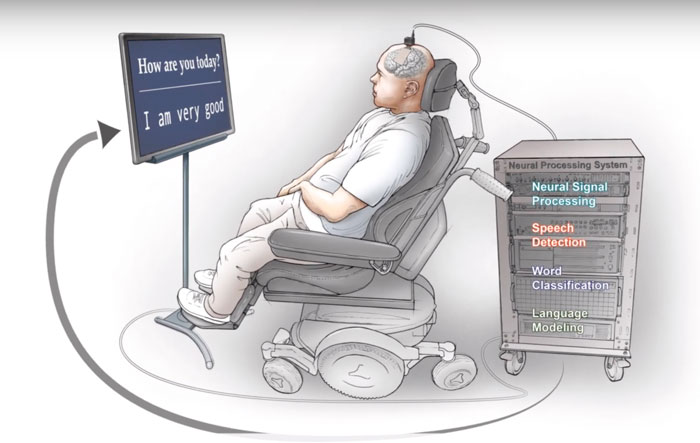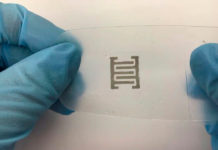A huge number of people lose their ability to speak every year as a result of an accident, stroke or other illness. The “speech neuroprosthesis” created by scientists from the University of California at San Francisco (UCSF) will help paralyzed patients communicate, which allows transforming brain impulses into full-fledged sentences and displaying them on a computer monitor.
Work on the creation of a neuroprosthesis had been carried out at UCSF for ten years under the supervision of Professor Edward Chang. The inventors claimed that it was the world’s first successful attempt to directly decipher the brain signals of a paralyzed person and translate them into words displayed on the screen.
Unlike traditional methods, which use signals to spell words for communication with people who have lost speech, in Chang’s technique, signals designed to control the muscles of the vocal system are translated into complete words.
The first participant in the trial was a 30-year-old man who had suffered a stroke and lost the ability to speak as a result. Currently, the patient is able to form short sentences on the screen using a vocabulary of 50 words. Decoding of brain impulses is carried out at a speed of up to 18 words per minute with a recognition accuracy of 93%. Now scientists are working to expand the patient’s vocabulary and increase the speed of decoding brain impulses.







